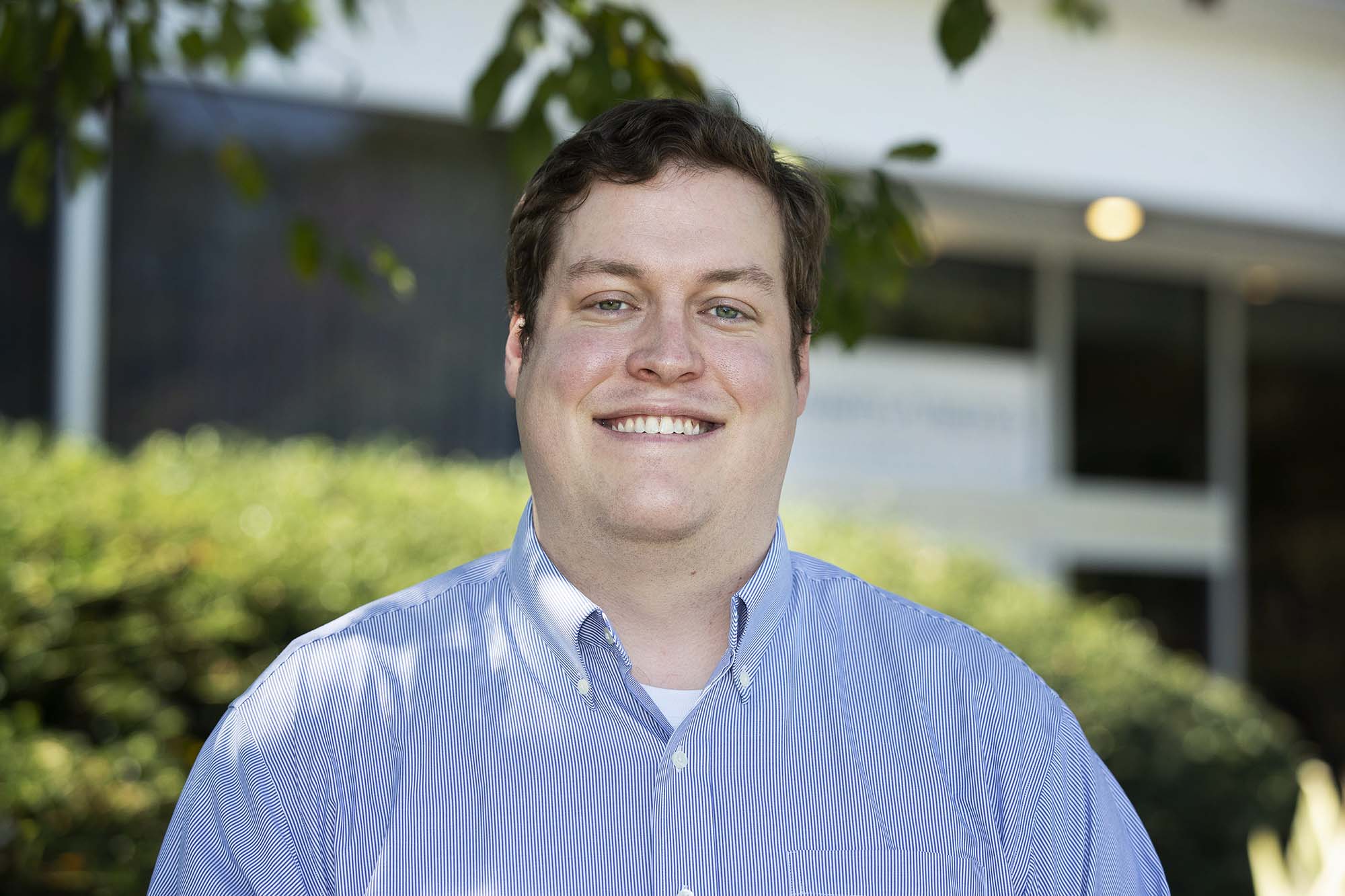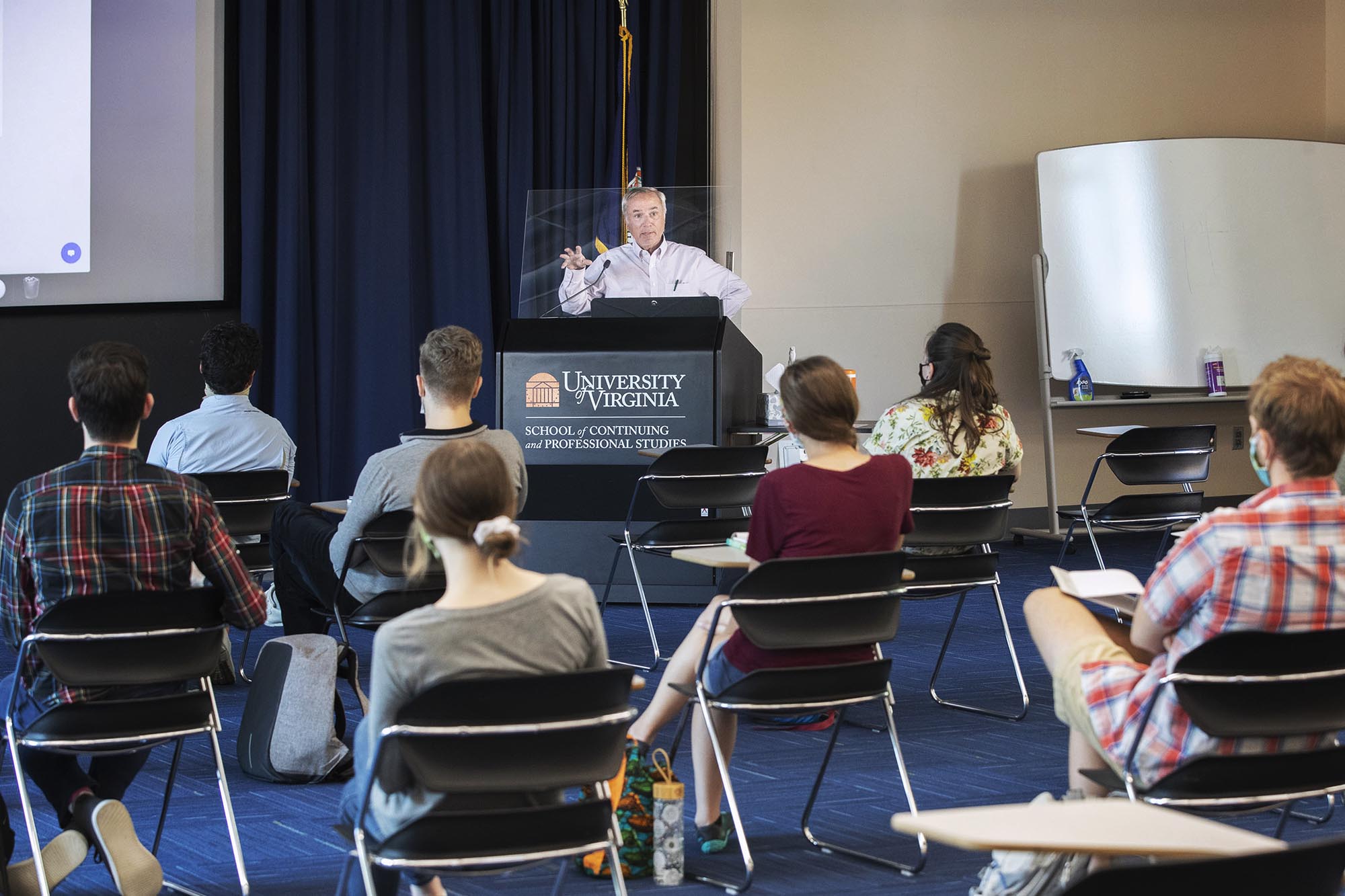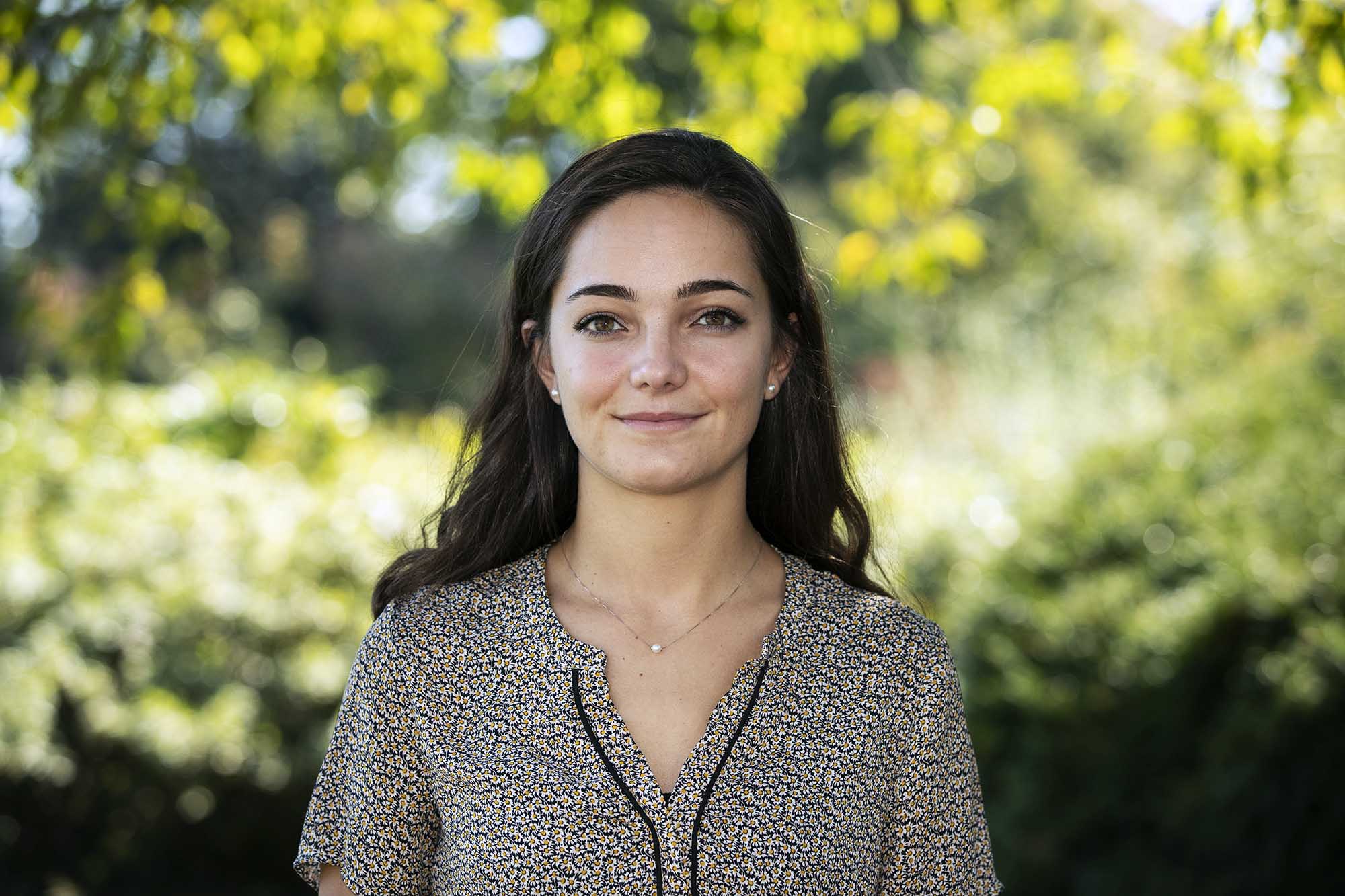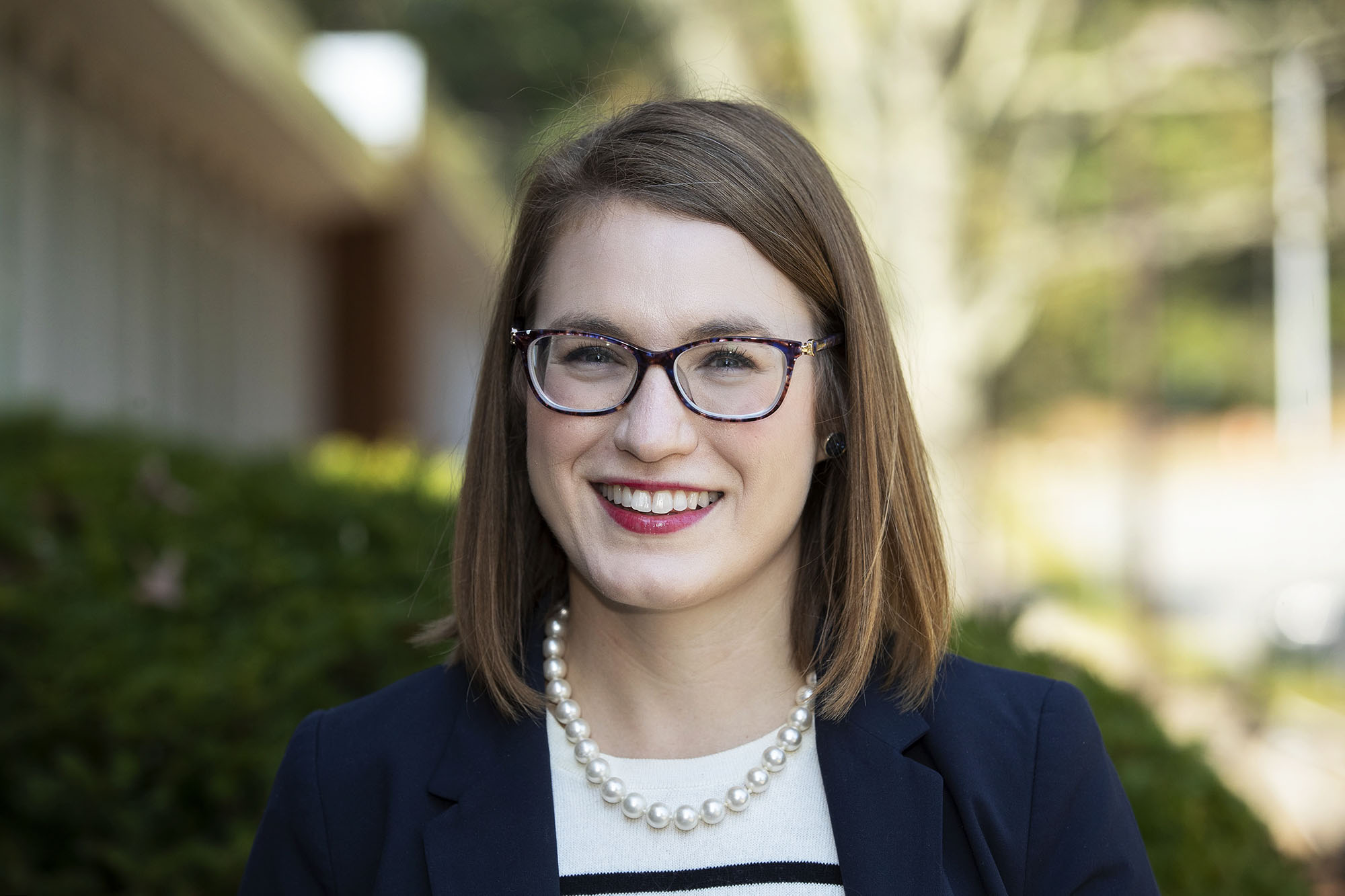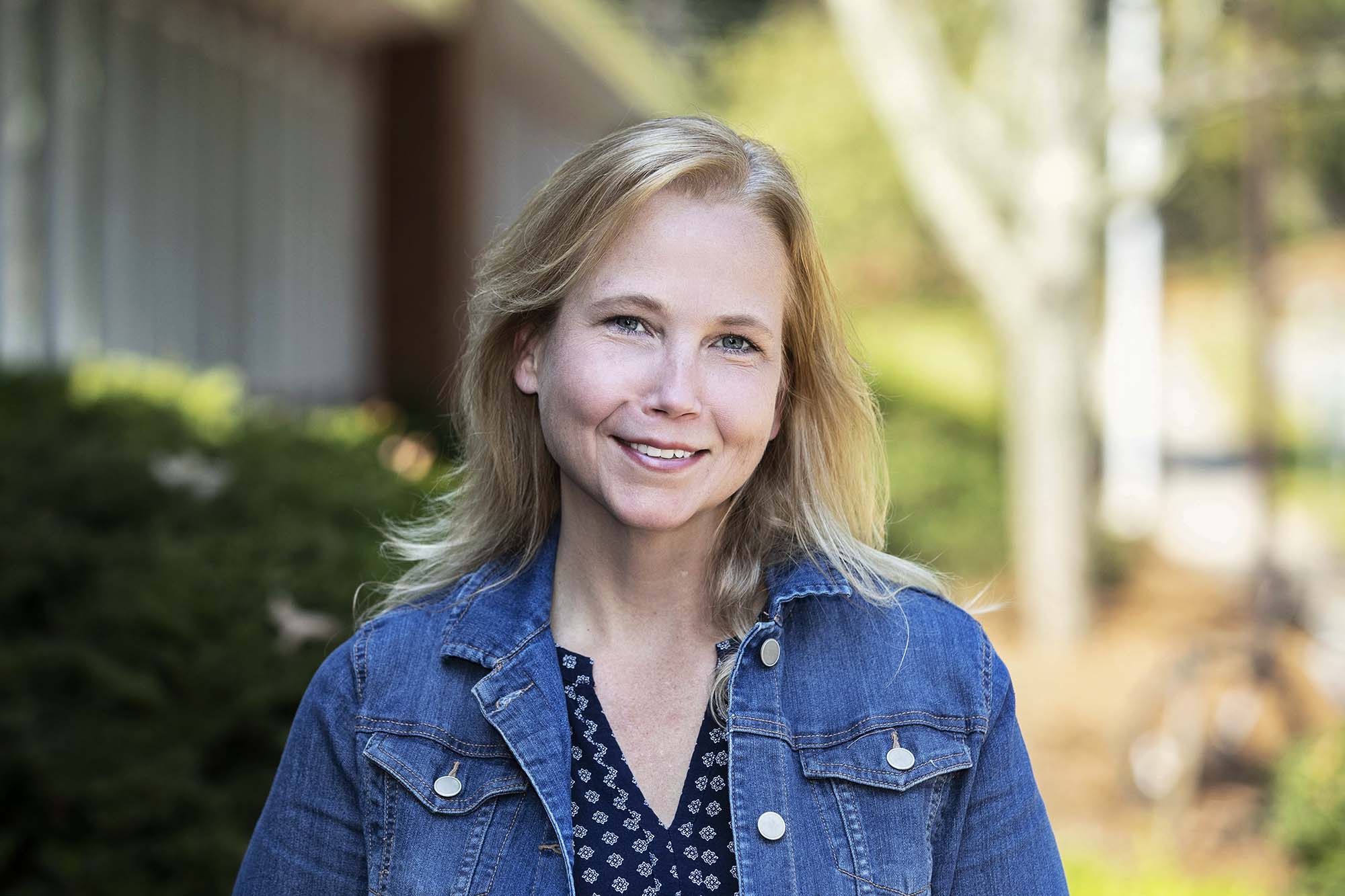In this pandemic time, more people are seeing a future in medicine; applications to medical schools have increased 18% this year, according to the Association of American Medical Colleges. Some admissions officers have called it the “Fauci Effect,” after Dr. Anthony Fauci, director of the National Institute of Allergy and Infectious Diseases and a prominent media figure during the COVID-19 pandemic. The SCPS program receives 250 to 300 applications a year for 35 slots.
The students in the cohort follow a structured, 11-month program of medical school prerequisite courses, consisting of general chemistry and biology, organic chemistry, physics and biochemistry. In a normal year, all the classes take place on Grounds with faculty from the College of Arts & Sciences; these days, they are online.
Marie Vetter, the daughter of an Army doctor, joined the program after graduating from Pacific Lutheran University, a small liberal arts college about 30 minutes south of Seattle. She traces her interest in becoming a doctor to an internship she had in her mother’s native France while a college sophomore.
“I worked in a French hospital and I got to see firsthand the care that people received, and I felt that was a much more formative event for me,” she said. “Getting those one-on one interactions with people and seeing it on a concrete basis, how their physicians and their care team affected their lives. I really like to connect with people; getting with them on a daily basis is something that makes me feel the most fulfilled, and so medicine seemed to be the right option to take for me.”
The cohort members attend a weekly seminar on U.S. health care, which focuses on its structure, bioethics and other issues that future doctors face. The seminar is taught by Dr. Robert Powers, one of the chief medical officers at UVA Health.
“I think of our program as much more holistic than what I see in other programs,” Susan Salko, director of the program, said. “UVA’s program focuses on the academic, professional and personal development of the students and provides advisers in each of these three areas to serve as guides.”
Aside from the classwork, students have opportunities to shadow medical professionals and volunteer in clinics.
“We offer the opportunity for them to do clinical work, so we facilitate orientation to the UVA Medical Center and to the Free Clinic, and those are hard positions to get,” Salko said. “There is a lot more happening than just what happens in the classroom.”
Vetter volunteers at the UVA Medical Center Infusion Clinic, which she said helps keep her focused on why she spends so much academic time in front of the computer.
“It solidifies my desire to go down this route,” she said. “It is easy, in such a rigorous program, to get lost in all your classes and lose sight of the real reason I am doing this. Getting a chance to volunteer is one of the reasons I selected this post-bac program. It has such great connections with the UVA hospital. Getting to go there every week has been one of the highlights of my week.”
The program is condensed, which in itself helps get the students into medical school.
“If you successfully complete this program, it shows medical schools that you are academically capable and that you have the drive to see this commitment through,” Golaszewski said. “That is why we believe that our acceptance rate is as high as it is.”
The cohort system, in which all the students take all the same courses together, develops a tight bond among the students.
“We are renowned for having a very cohesive and collaborative cohort experience, primarily because the students have to rely on one another,” Salko said. “They study with each other and they all know what they are going through and they commiserate with each other. This is pretty magical to watch throughout the year.”
French was drawn in part because of the cohort approach.
“There have been challenges this year that are unique to this year,” French said. “Nobody expected COVID-19 to come along, and that has meant that the in-person side of the collaboration has been significantly reduced. But we still find ways to make it work and collaborate with each other.”
French lives with another cohort member and they study together, as well as in small groups.
“We can log in on Zoom and we have a teaching assistant who leads us through everything,” French said. “For biology lab, they sent us a lab kit with pipettes and test tubes and different chemicals and you got to mix them together. It was all very safe because none of them were really dangerous. But it was fun to spread them out on the table at home and put little drops into test tubes. They are finding some unique ways to adjust to this.”
“I feel very, very lucky because everyone in the cohort is supportive of one another,” Vetter said. “We have definitely found ways around how to meet online doing Zoom study nights, Zoom movie nights to decompress once in a while.”
Vetter explored the UVA program because her brother is currently a third-year medical student at UVA.
“I really appreciated the small cohort size,” she said. “Charlottesville has a small-town feeling, where you can still recognize people on the street, but it has incredible resources like a teaching hospital. It seemed like a good fit for me.”
French had almost attended UVA for his undergraduate degree and had visited Grounds several times for a variety of reasons. When he was looking for a post-baccalaureate, pre-medicine program, he found a natural fit at UVA.
“When I visited, I talked to students here and I think the thing that stuck out to me about UVA versus similar programs was that the students all gave glowing reviews about each other, the cohort and the community that they had together, and how supportive and collaborative it was, which is not something that you hear everywhere,” French said.
